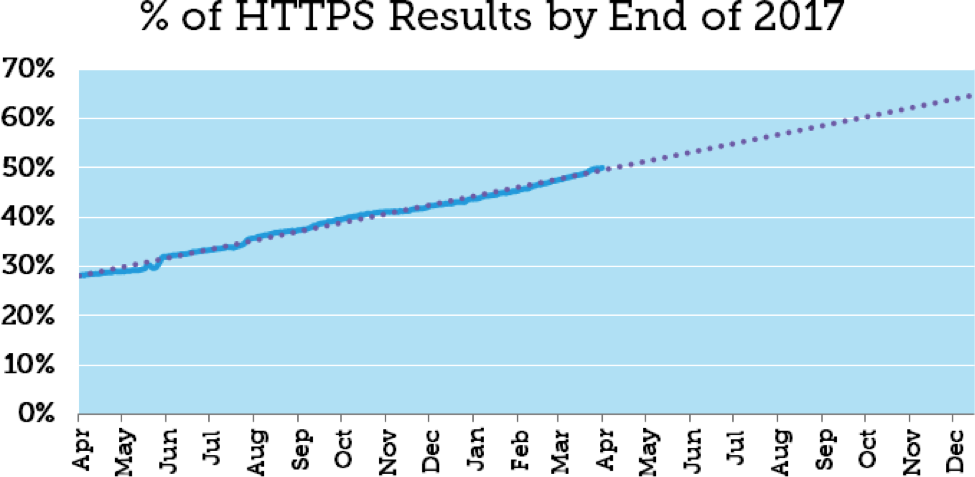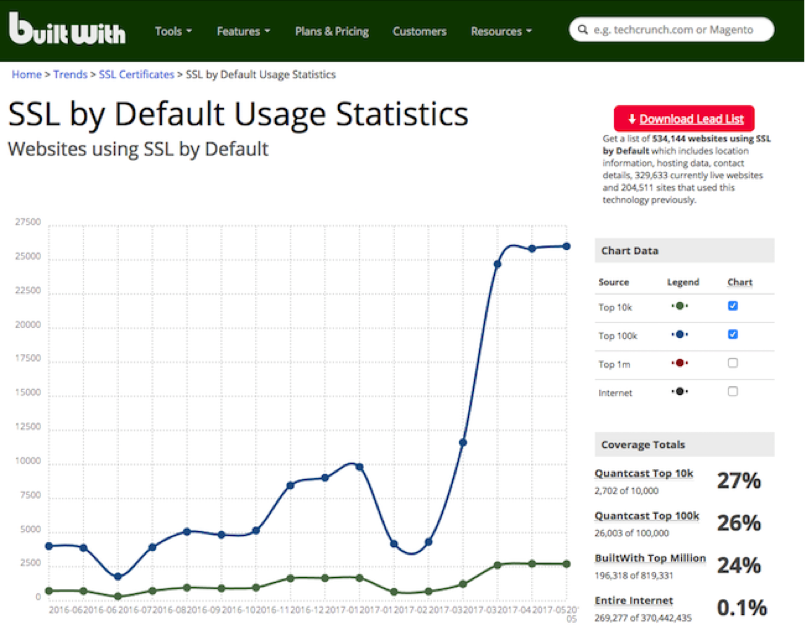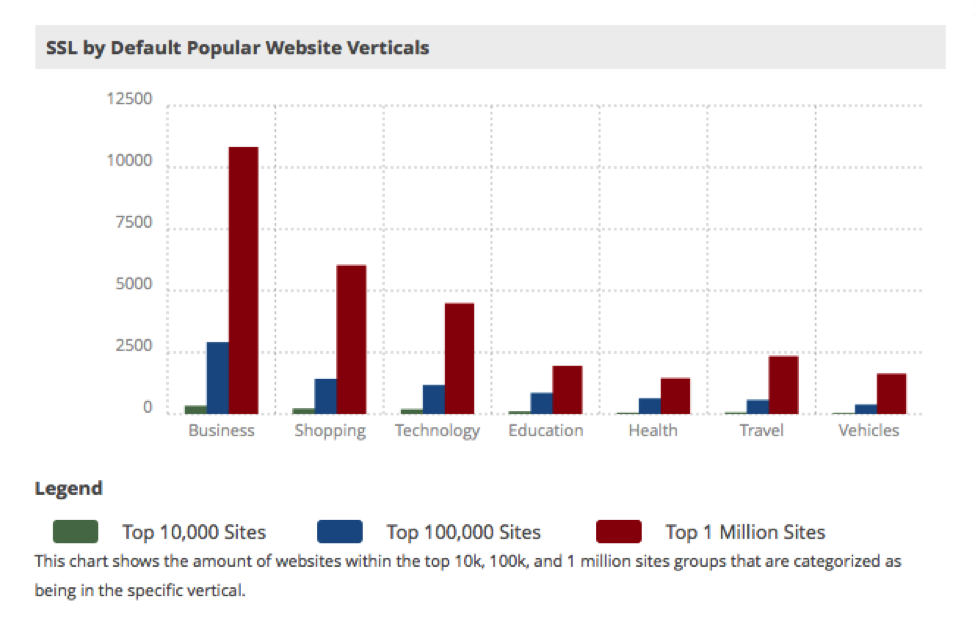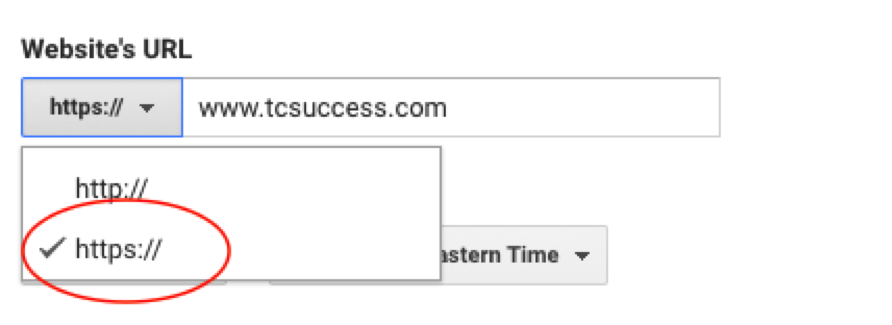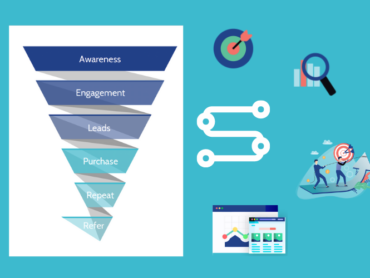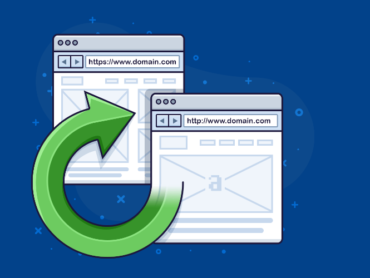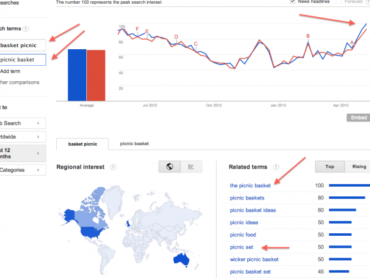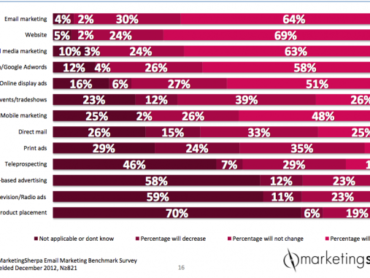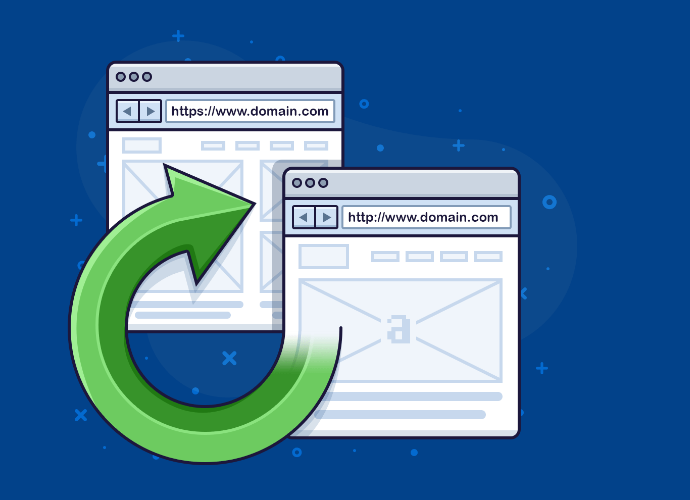
Benefits of moving from HTTP to HTTPS
If you have been contemplating switching your site from HTTP to HTTPS, you’re certainly not alone. Recent years, and especially in the first half of 2017, there has been explosive growth in the number of sites making the switch. There are several reasons why the move to HTTPS can be beneficial, and why sites are now making the transition.
Google and SEO Benefits of HTTPS
Since the fall of 2014, Google has indicated that HTTPS use will be considered as a ranking signal, even though the search engine giant rarely makes this type of information publicly available. Since then, officials at Google have been discussing it more aggressively, and the advantages of using HTTPS are clear. Essentially, it provides extra security by obtaining a certificate ensuring the site is authentic. It also provides 3 layers of protection through encryption, enhanced data integrity and authentication. Because of the enhanced security and increased rankings, adopting HTTPS is considered essential at this juncture, As Thao Tran from the Global Products Partnerships at Google, noted during her keynote address at Share16, “HTTPS is the new standard…..and making sure your site is secure is an imperative at this point…The future of the web is a secure one, and so make sure people in your organization understand HTTPS, and it should be on the road map.”
With Google’s move to using HTTPS as a ranking signal, it’s incredibly likely that it will lead to a boost in traffic since Google dominates the search engine market. Currently, according to this Moz report Google’s first-page search results are 50% HTTPS; this number is expected to grow to 70% by the end of the year. And, other search engines are likely to follow in Google’s footsteps as they have done in the past. Google trends usually set the industry standard. So, while it is impossible to gauge exactly how much of a traffic boost will be experienced initially, it is extremely likely to lead to far more traffic in the future. This data has huge implications for SEO
Source: Schwartz, B. (2017, April 24) Moz Report: 50% of page one search results are HTTPS; Search Engine Land
Growth of HTTP to HTTPS
These insights into the future of HTTPS are the reason we are seeing such a huge increase in the number of sites adopting the standard. While some current adopters have experienced a small decrease in traffic, it is typically temporary and will lead to increased traffic moving forward., enhancing the SEO elements of their site. This isn’t a passing phase; HTTPS is the future of the internet and it is not going to go away. Those who wait longer to adopt the standard will lose out on the benefits of using HTTPS. The past few months have seen an especially large jump in the number of sites that have moved to HTTPS.
Source: SSL by Default Usage Statistics: Websites using SSL by Default. (n.d.). builtwith online
However, this jump is not uniform. Business-based and shopping sites compose the largest share of current adopters, with education and health sites trailing substantially. There is a lot of room for these sectors to make the move to HTTPS, and those who complete this sooner will be in a better position in terms of SEO within their site. However, if you are in one of the slower moving verticals, you may have a bit more time, as your competitors may not make the switch as quickly either.
Improved User Experience and Lower Costs
Better visibility isn’t the only reason many are now switching to HTTPS. Those sites that stick with HTTP-only will likely pull up a warning in Chrome indicating that the site is insecure and sensitive information should not be entered. By contrast, a secured HTTPS site will show a lock with the phrase ‘Secure.’ The difference between these two will likely lead to a greater peace of mind for digital consumers who largely prefer that their information remains as secure as possible. Those sites with HTTPS are also likely to experience a faster loading time that those without.
In addition to these factors, the cost of implementing HTTPS is lower than it has ever been. In the past, the security certificates, extra hosting and the content delivery network (CDN) all had additional costs associated with them. That is no longer the case, as the prices are substantially lower, and sometimes free, for these services.
Plan Your Move to HTTPS
Despite the fact that there are many reasons to move from HTTP to HTTPS, this is not a process that should be rushed. It is vital that a proper amount of planning and forethought take place before any changes are made. During the process, there are many very common pitfalls that can occur during the transfer, including crawling and indexing issues as well as duplication of material, among others. To minimize these issues, it’s very important to have a well-thought out plan for the entire transition. One example lists 29 steps just to make the implementation, although that number will almost certainly vary depending upon each site and its particular needs.
After the Move to HTTPS:
Settings Updates: As soon as possible, please make the following updates to Google Analytics and Google Search Console.
Create a new Google Search Console Property
This should be done as soon as possible after migration. Having access to Google Search Console is the best way to monitor the site. Important data is also collected here, that will not be reported (Impressions, Clicks and Position) by Page and Keyword until you update GSC. This is a rolling window of 90-day data so you will get caught up. Once the switch is made, your current (HTTP) Search Console will not capture data.
Go to Search Console:
Click Add Property
Type https://YOURDOMAIN> Click ADD.
Follow instructions to verify the property
You will also want to update your View & Property Setting in Google Analytics by changing the Website’s URL to https://
Once these are finalized, you should do a complete site audit to ensure that all is well.
Conclusion
We are truly at a point in time with this protocol where the pressure to make the switch is mounting and most sites realize it is inevitable. HTTPS is a known ranking signal that will likely grow in importance, and non-compliance will eventually lead to an adverse effect on rankings. In order to enhance SEO traffic, HTTPS implementation should currently be in the planning stages with an implementation deadline within 12 months. Implementation is complex and requires much planning and there may even be a small, but temporary decrease in traffic. However, it is still well worth it due to the SEO benefits, the security benefits and the fact that the cost is very minimal. Ensuring that the move is well planned and carefully executed will help to avoid the pitfalls mentioned, and make sure the transition is a success.

